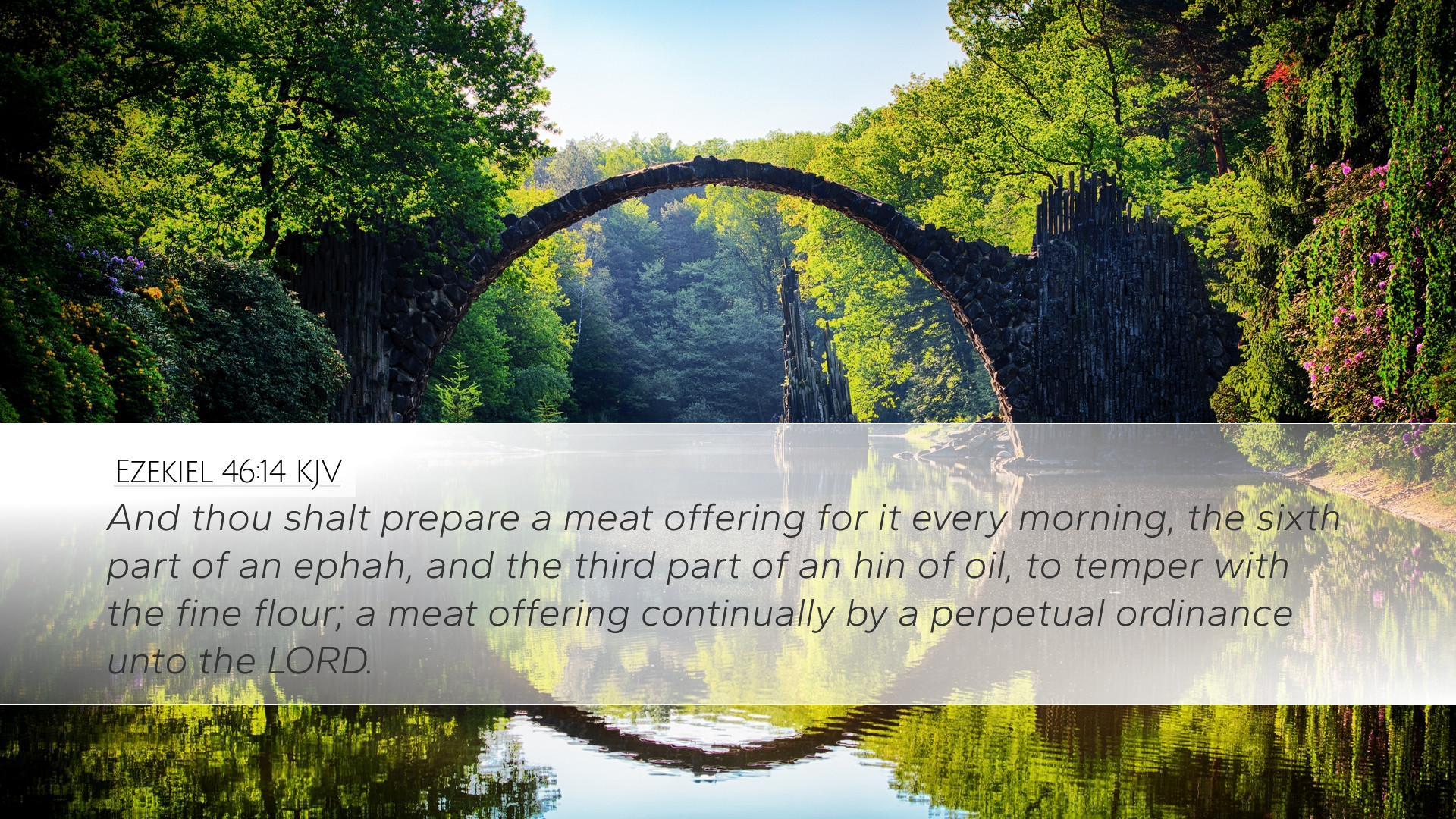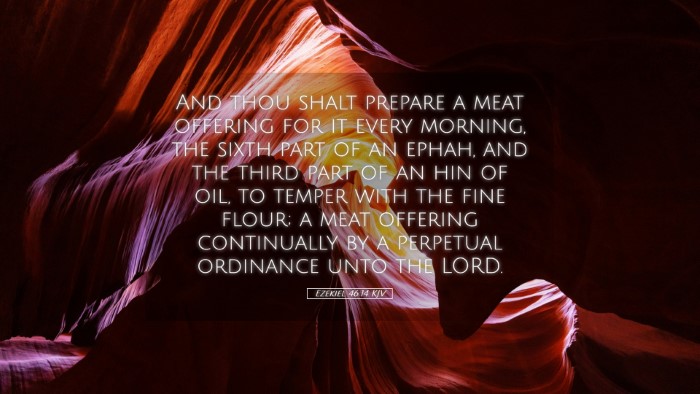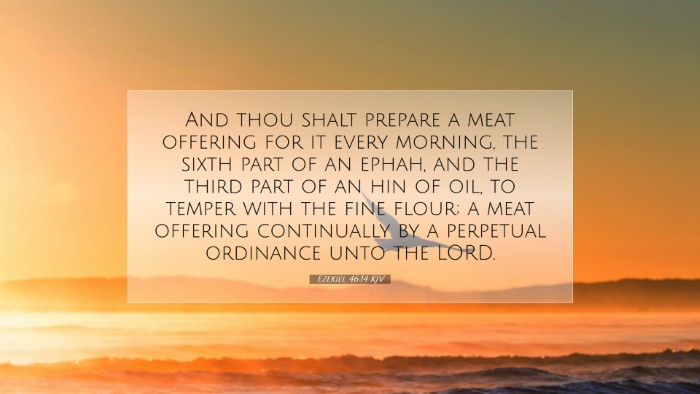Ezekiel 46:14 Commentary
Verse Reference: Ezekiel 46:14 - "And thou shalt prepare a meat offering for it every morning, the sixth part of an ephah, and the third part of a hin of oil, to temper with the fine flour; a meat offering continually by a perpetual ordinance unto the Lord."
Introduction
The passage of Ezekiel 46:14 presents a component of God’s instructions regarding the worship practices to be observed in the restored temple. Central to this instruction is the emphasis on continual offerings that reflect commitment and obedience to God. This verse is significant for understanding the role of offerings in ancient Israelite worship and the implications for New Testament believers.
Contextual Background
Ezekiel’s vision encompasses a comprehensive revelation to Israel during their Babylonian exile. The purpose of these instructions, specifically those related to the temple, is both to guide the Israelites back to proper worship and to prepare them for a renewed covenant relationship with God upon their return. This verse is found within a larger discourse regarding the practices and regulations for temple worship.
Matthew Henry's Commentary
Matthew Henry articulates that this passage underscores the meticulous nature of the offerings, commanding attention to the details of worship that reflect Israel's covenantal relationship with God. The meat offering (grain offering) symbolizes devotion and gratitude to God. Henry notes the significance of the daily aspect of the offering, indicating a continual dependence on God’s provision and blessing.
Albert Barnes' Insights
Albert Barnes points out that the 'sixth part of an ephah' and 'the third part of a hin of oil' prescribe specific measurements, indicating that God desires order and precision in worship. Barnes explains that the grain offering was not meant for atonement but was an expression of thankfulness. This daily offering signifies a life oriented towards God and an acknowledgment of His daily sustenance.
Adam Clarke's Analysis
Adam Clarke emphasizes the spiritual implications behind the ritual, suggesting that the fine flour used in the offering represents purity and holiness. He highlights the fact that the requirement for continual offerings cultivates a lifestyle of worship that transcends mere ritualistic practice. Clarke also reflects on how this concept is applicable in the New Testament context, where believers are called to be living sacrifices (Romans 12:1).
Theological Implications
This verse illustrates several theological principles relevant both in the Old Testament and for contemporary Christian contexts:
- Perpetuity of Worship: The command for daily offerings emphasizes an ongoing relationship with God. Worship is not confined to special occasions but is a daily commitment.
- Significance of Preparation: The detailed instructions for the offerings stress the importance of preparation in approaching God, reminding believers that worship should involve intentionality and reverence.
- Symbolism of Offerings: Each component of the offering—the flour and oil—holds symbolic weight, representing the entirety of life and the clinging to divine sustenance in both need and abundance.
- Christological Fulfillment: The grain offering foreshadows Christ, the ultimate offering for the sins of humanity. Believers can reflect on how Jesus fulfills these old covenant practices through His sacrificial work.
Practical Applications
For today’s pastors, students, and theologians, there are several practical applications that can be drawn from Ezekiel 46:14:
- Daily Devotion: Encouraging believers to develop a routine of daily prayer and offering their lives to God in every aspect, reflecting the principle of continual worship.
- Attention to Detail in Worship: Highlighting the importance of maintaining integrity and precision in church practices and personal worship, ensuring that they honor God appropriately.
- Cultivating a Thankful Heart: Promoting an attitude of gratitude in all aspects of life, aligning with the spirit behind the grain offering as an expression of thanksgiving.
- Living Sacrifices: Teaching that Christians are to offer themselves continually to God, embodying the sacrificial nature of New Testament faith as described in Romans.
Conclusion
The insights derived from Ezekiel 46:14 speak volumes about the nature of worship, the character of God, and His desire for a sincere relationship with His people. As believers, acknowledging the significance of such offerings can lead us towards a deeper understanding of our covenant with God and how we are called to live in response to His faithfulness.


